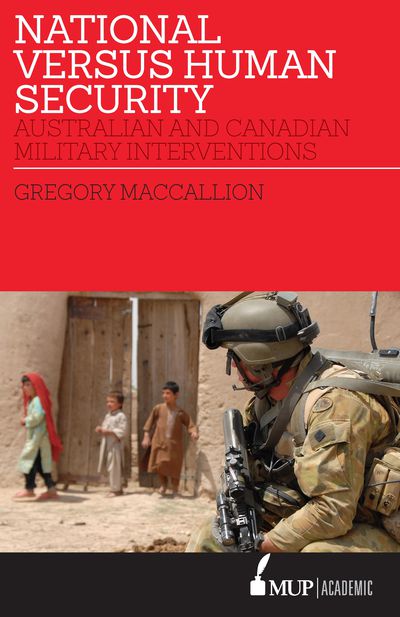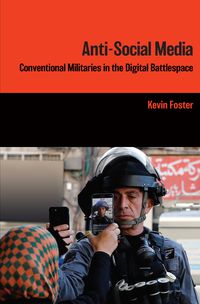National Versus Human Security
Australian and Canadian Military Interventions
Gregory MacCallion
Paperback
Out of stock
$49.99
Member discount
As an MUP member you get 40% off the price of this book.
Member discount
As an MUP member you get 40% off the price of this book.
Member discount
As an MUP member you get 100% off the price of this book.
Member discount
As an MUP member you get 25% off the price of this book.
Member discount
As an MUP member you get 25% off the price of this book.
Member discount
As an MUP member you get 25% off the price of this book.
Member discount
As an MUP member you get 40% off the price of this book.
Member discount
As an MUP member you get 10% off the price of this book.
Member discount
As an MUP member you get 35% off the price of this book.
Member discount
As an MUP member you get 40% off the price of this book.
National Versus Human Security
Australian and Canadian Military Interventions
Gregory MacCallion
Analysing human security and national security.
By examining two military interventions that have defined the post-Cold War period, Somalia (1992-1995) and Afghanistan (2001-2014), this book argues that for Australia and Canada, the concept of human security works better in practice than it does in theory. When human security was first advanced in 1994, debates raged. It was argued that the concept needed an agreed and articulated definition before it could have policy relevance or applicability. The book provides unprecedented access to the key actors and decision makers, including Prime Ministers, military commanders, and senior diplomats.
It argues that the core concept of human security has altered states' understanding of traditional national security during the implementation of military interventions. The experience of Australia and Canada over this period demonstrates that the concept of human security is becoming more relevant to states, and their policy makers and military planners, as they conduct military interventions.
By examining two military interventions that have defined the post-Cold War period, Somalia (1992-1995) and Afghanistan (2001-2014), this book argues that for Australia and Canada, the concept of human security works better in practice than it does in theory. When human security was first advanced in 1994, debates raged. It was argued that the concept needed an agreed and articulated definition before it could have policy relevance or applicability. The book provides unprecedented access to the key actors and decision makers, including Prime Ministers, military commanders, and senior diplomats.
It argues that the core concept of human security has altered states' understanding of traditional national security during the implementation of military interventions. The experience of Australia and Canada over this period demonstrates that the concept of human security is becoming more relevant to states, and their policy makers and military planners, as they conduct military interventions.
Paperback
Out of stock
$49.99
Member discount
As an MUP member you get 40% off the price of this book.
Member discount
As an MUP member you get 40% off the price of this book.
Member discount
As an MUP member you get 100% off the price of this book.
Member discount
As an MUP member you get 25% off the price of this book.
Member discount
As an MUP member you get 25% off the price of this book.
Member discount
As an MUP member you get 25% off the price of this book.
Member discount
As an MUP member you get 40% off the price of this book.
Member discount
As an MUP member you get 10% off the price of this book.
Member discount
As an MUP member you get 35% off the price of this book.
Member discount
As an MUP member you get 40% off the price of this book.



